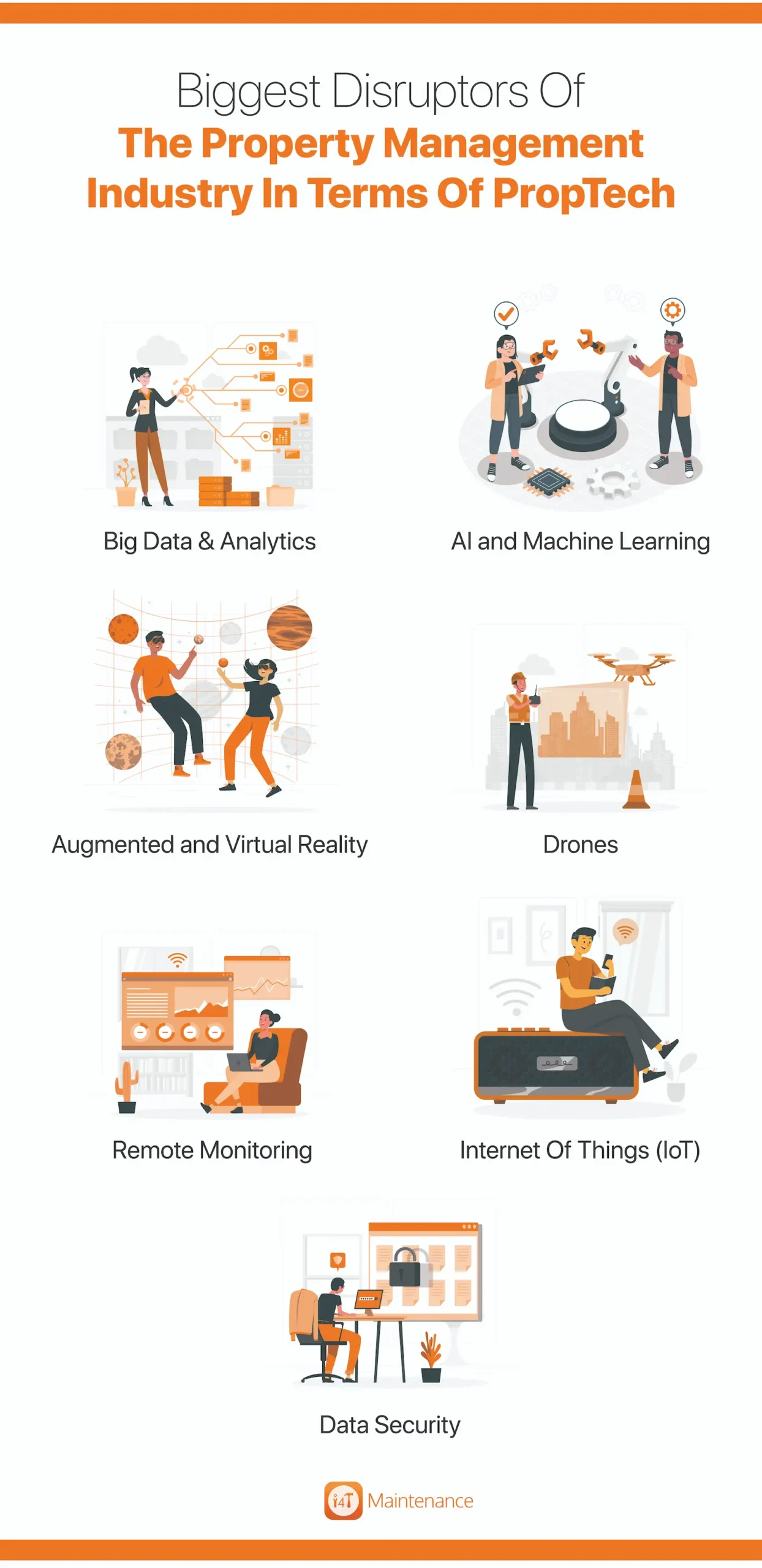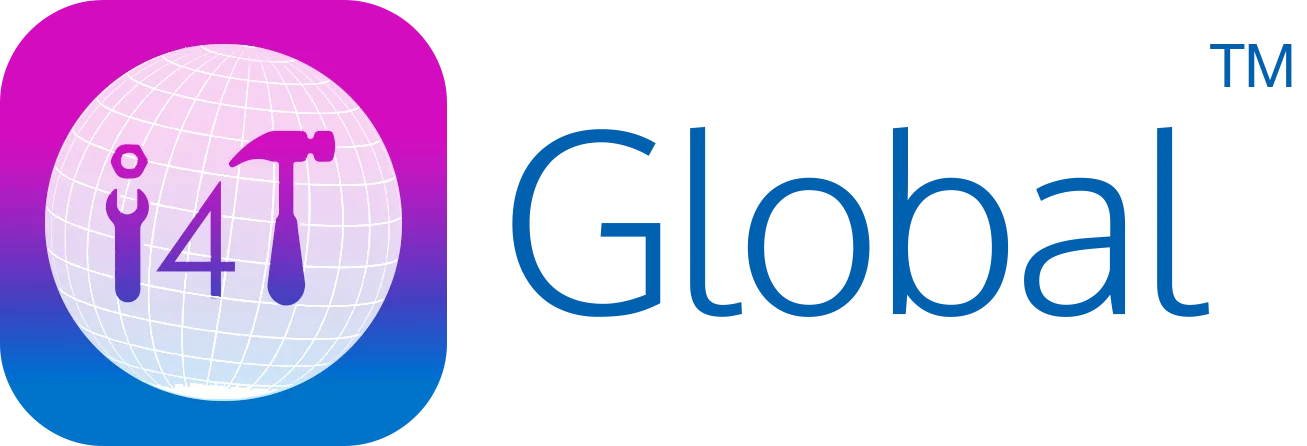What Is PropTech?
From my point of view, PropTech is the common terminology used to describe the new era of Technological Innovation that is projected to disrupt the Traditional Real Estate Industry. This includes everything from Digitally Facilitating Unique Workplace Experiences to Providing Advanced Data and Analytics Capabilities for Real-Time Feedback.
PropTech is a cutting-edge Approach to Real Estate in which Technology optimizes the way people Research, Rent, Buy, Sell, and Manage Properties.
What Paradigm Shifts Have PropTech Companies Already Brought Into The Industry?
With over four decades of experience in the Real Estate Industry, I would say it is thus far the World’s Largest Asset Class and as a result, New Trends are constantly emerging across the Industry. From Co-working to Co-living, the Real Estate Market innovates and shapes its endeavors to meet the increasing demands.
The PropTech Industry growth has been on the rise since 2014. The pandemic has accelerated this growth even further. Why?
The COVID-19 Pandemic has set the bar high for keeping a building operational. Concerned about this, Landlords and Property Managers have identified a critical need to Integrate Technology into Facilities Management like for example i4T Global.
State of Individual Property Types in the Post-Pandemic World
According to Deloitte Insights, there are a lot of changes that have taken place in Real Estate Demand and Supply, some as a direct result of COVID-19 and how it has changed Consumer Preferences forever.
Office: The shift to remote work during the Pandemic has changed the need for Office Spaces. Although over Two Million Office Jobs have been added in the U.S. since 2020, the industry lost about 200 million square feet of office space.
Retail: Recently, Retail Conditions have been improving, following a significant dip in consumer sentiment at the start of 2023. Enhancing Digital Capabilities in Physical Locations can pay off big time for retailers.
Industrial: The Pandemic-driven surge in consumer goods spending has skyrocketed the need for Warehousing and Manufacturing areas. In response, an unprecedented level of New Construction is planned to commence by the end of 2023 to accommodate this demand.
Housing: After Interest Rates went up, home sales slowed down from the high levels they reached during the Pandemic, and in some places, House Prices started to go down. But, even with these lower prices, High Mortgage Costs and difficulty getting loans have made fewer people buy homes.
Hotel: The Hotel Industry is recovering, aided by vaccine rollouts and fewer travel restrictions, with a notable increase in Leisure Travel revenue in the Americas and Europe, but still lagging in Asia/Pacific. Hotel operators, however, are struggling with Staff Shortages (only 84% of pre-pandemic levels at the end of 2022) and Supply Chain Problems, impacting service quality and delaying renovations due to increased costs and limited financing.
Revolution Of PropTech In The “New Normal”

During the pandemic period, the Industry was forced to reassess its old and outdated practices.
According to Wall Street, Risk and Compliance Journal, as Real Estate leaders head into 2024, they can think about various Progressive Strategies, especially those related to adapting to New and Revised Regulations and enhancing Operational and Technological Efficiencies.
While a whooping, 61% of Real Estate Firms surveyed still depend upon their Legacy Systems that often serve just a single purpose, at least half of them plan to Modernize their Systems.
Outsourcing such operational and technological capabilities is their most preferred way of doing so.
Their main goal includes acquiring technological skills and simplifying processes (42%), increasing flexibility and robustness in their operations (39%), and implementing integrated solutions across various business areas (38%)
While Real Estate has historically been slow to adopt a Digital Transformation, COVID-19 has accelerated that process from 0 to 100.
Biggest Disruptors Of The Property Management Industry In Terms Of PropTech

1. Big Data & Analytics
Big Data is completely upending the Real Estate Industry, in a good way, I mean. From the ability to make more Accurate Appraisals on a Large Scale to more Personalized Real Estate Marketing, better Risk Mitigation, and Faster Application Processing Times, Big Data is profoundly changing the Real Estate Industry.
With Big Data comes enhanced Predictive Analytics, or the Capacity to Use Sophisticated Computer Algorithms that can predict Market Fluctuations.
2. AI and Machine Learning
In the PropTech Space, AI and Machine Learning continue to gain interest and traction as it is used in many processes such as Building Operations and Performance, Tenant Experience, Robotics and Drones, Real Estate Investment, and more.
For example, Conversational AI can be used for Work Order Management through a Human-Like Conversation in which the person can obtain the information they require from the comfort of their desktop, mobile device, or similar method, or through a voice assistant like Alexa.
3. Augmented and Virtual Reality
One of the most powerful tools that are cutting through the clutter in the Real Estate Industry is certainly represented by Immersive Reality, which uses technology to create simulated environments that feel real. Immersive Reality comprehends Virtual Reality (VR) and Augmented Reality (AR). The user is completely involved in a rich visual experience that can resemble the real world or enhance it.
Virtual Reality tours and the use of Augmented Reality offer the chance to connect with customers on a more personal level and deliver memorable experiences while letting you gain a competitive advantage. Offering lifelike interactive experiences and a clear presentation for a better understanding of the product will make the client feel involved and more interested.
4. CGI Rendering
CGI renderings have enabled Property Developers and Hotels to be more creative while also saving money. During the pandemic, as Designers and Architects work on Project Planning Stages, 3D Architecture and Visualization helped to create a detailed picture. It also gives a client peace of mind and allows them to see the project’s vision. Photo-realistic 3D renders also add value and can be an excellent tool for marketing and engagement.
5. Internet Of Things (IoT)
The Internet of Things (IoT) is a Global Network of Physical Assets – 'things' like Sensors and Devices – linked by the Internet. These 'things' are used to Monitor their surroundings and Collect and Exchange Data.
With the advent of connected sensors and massive data collection, paired with powerful analytics, blockchain, and AI, PropTech is now entering a new area of services. It encompasses everything from looking at buildings as platforms to adjusting usage on demand using digital twins as a managing tool and more.
6. Remote Monitoring
With the rapid evolution of PropTech over the past year and a major shift in how Security and Facility Management Leaders have approached the implementation of Cloud Technology to meet the accelerated pace of working offsite during the pandemic, organizations have realized the critical need to remotely manage security and access control, and see what’s going on in real-time, without being on-site. This is being accomplished in large part through the Cloud.
7. Drones
Drones are Remote-Controlled or Software-Controlled Robots that collect and monitor data in the air. Drone Technology captures Data in Real-Time as well as 3D Modeling.
Historically, the Real Estate Industry has needed to relieve on-field information for different purposes. Usually, that process implied inspectors going to the site or building itself to take photos and use specialized equipment to take measures. They did so to detect energy inefficiencies, identify potential maintenance needs, and look for areas of improvement.
What’s the best thing about it? Using Drones significantly cuts down the costs of relieving information, as there’s no need to use planes or helicopters anymore. Besides, Drones can be used to create virtual replicas (known as “digital twins”) that can be of tremendous benefit.
8. 5G Technology
5G eliminates latency and enables much larger amounts of data to be transmitted. As technology advances, 5G proptech will even enable virtual and augmented reality feeds that provide prospective tenants with a comprehensive, real-time view of the building even if the prospect is located across the country.
9. Block Chain
Blockchain enables Smart Contracts and Digital Agreements that record transaction details and activate when specific conditions agreed upon by the Buyer and Seller are met. This removes the need for Third-party participation and paper records while improving Transparency and Safety.
10. Property Aggregation Platforms
Property Aggregation Platforms in PropTech are digital platforms or websites that collect and display Real Estate Listings from various sources. These platforms serve as Centralized Databases where potential Buyers, Sellers, Renters, and Real Estate Professionals can access a wide range of property information.
They are quickly becoming a key component of the evolving PropTech landscape, with features such as the ability to Connect with Agents, Comprehensive Market Data, and Alerts and Notifications about new Listings.
11. Building Management Systems
Building Management Systems (BMS) in PropTech (Property Technology) are advanced solutions that integrate Software and Hardware to Manage, Control, and Monitor various Building Functions.
These systems are crucial in modern property management for Enhancing Efficiency, Reducing Costs, and Improving overall Building Performance. From fault detection to identifying maintenance needs, energy management, building automation, and control, and ensuring optimal operating conditions they enhance Tenant Comfort and Satisfaction.
12. Data Security
Given the sensitive nature of Real Estate Operations, there is an increased emphasis on Data Encryption, Access Control, Compliance with Regulation, Cyber Security, Data Storage and Deletion Policies, and Continuous Monitoring of systems.
As the industry develops further, businesses offering PropTech services, are offering better data protection to build trust with their clients.
The Value In Time Within Property Management
Abraham Lincoln once said, “If I had eight hours to chop down a tree, I’d spend six sharpening my axe.”
A well-honed tool completes the task quickly. To get the job done, you’ll need a well-honed, system-based strategy. Without such a plan, time can elude you, and what should take minutes can take hours, if not days.
Smart Time Management is essential for carrying out your Property Management Strategy. Effective Time Management provides a variety of benefits, some obvious and some less so. It increases overall efficiency, provides valuable strategic advantages, and creates space for logical, creative thinking.
You know the feeling. You’re sitting at your desk, looking at the time. “Already three o’clock? What happened to time?” Another day of hard work, but the tasks are not completed.
You may find yourself falling into task-focused thinking amid all the activities.
Your list of repairs and maintenance grows longer, so you spend more time running around trying to get everything done. Or you get stuck in either-or scenarios, such as saying, for example, “I only have time to do the repairs.
I have less time for preventive maintenance the more time I spend on repairs. But the more repairs I do, the more I realize I need to do preventive maintenance.”
Since your time is valuable, it is critical to plan how you will spend it. Your abilities should not be wasted on inefficient tasks or tasks that others could perform.
This is where planning comes into play. Can you combine tasks to complete them more quickly? Can you delegate certain responsibilities to others? Can you devise a system for locating staff or participants to assist with certain aspects of maintenance?
How PropTech Can Make Lives Easier?
As our society becomes more and more reliant on New Technology to make our lives easier. Property Management Companies, Landlords, and Service Agents are adopting software to help manage their portfolios.
1. Automation
The number of hours spent on spreadsheets and sending manual messages increases the amount of manpower required to manage properties. The entire Automation Process Reduces Communication Time, benefiting both Tenants and Property Managers through a more Streamlined System. Reminders including Rent Due Dates, Viewings, and Check-Ins or Check Outs can all be automated, ensuring that neither the Property Manager nor the Tenants forget anything.
2. Agile Workflow Management
Efficient Workflow Management is essential when trying to organize multiple maintenance issues at the same time. Field Service Suppliers must be made aware of the situation as soon as possible, and it must be resolved quickly. Delays and Miscommunication lead to a waste of time and cause problems for both the Tenant and the Service Supplier.
3. Real-Time Communication with Stakeholders
At its heart, Property Management is a People Business. Managers are tasked with keeping Tenants, Owners, and contractors happy while not tearing their hair out. PropTech is making Property Management easier by bringing all of these groups together. Previously, the disparate communication between the various groups involved meant that a manager would spend half of their time on the phone, typing with one hand and writing an address with the other, and heaven forbid if they had to produce proof that someone received it. Property Managers can use technology to email/message their Tenants with a tap of the app, which allows all message history to be tracked, making management easier. Management software may also include a permissions feature, allowing you to control who sees what in the company and allowing different groups to communicate with only the people they need to.
4. Improves Management Of Co-Working Spaces
Under the new hybrid working model, the office will be transformed from a regular workplace to the center of collaboration. Dedicated offices are being replaced by co-working spaces.
To efficiently manage these coveted spaces, Proptech software should be used. This centralized app also facilitates employees as it allows them to collaborate efficiently with co-workers and manage everything from memberships, payments, and bookings to information sharing.
For Property Managers, this means improved customer tracking, space utilization, time and money savings on administrative tasks, and marketing strategies.
5. Simplifies Space Occupancy
Returning to work after the COVID-19 pandemic means less space occupied. By digitizing the process, PropTech can assist organizations in optimizing their limited space. With the use of a digital access management system, employees can allocate and book rooms in advance to secure their spots. Furthermore, a system like this can show which spaces are still available for use, allowing facilities to make the best use of them.
6. Cost Efficiency
People want to cut costs as a result of the additional costs imposed by the government. One way to accomplish this is to reduce the amount of time (and thus money) spent on administration. Businesses can streamline their management business by introducing software designed specifically for the property sector, allowing them to scale more easily or simply reduce the cost of their current business.
7. Time Management
Property management can involve a lot of paperwork, which can be difficult to keep track of, especially if you have to file contracts on behalf of multiple tenants. This can result in documents going missing and time being wasted looking for paperwork. It also restricts access to property managers who store all of the information, whereas software allows all parties to access it instantly and without delay.
8. Increases Innovation In the Real Estate Industry
We’ve heard about how quickly PropTech is making waves in the industry. But there’s more: big data can provide the information and knowledge needed to make informed decisions, making it easier to buy and sell more properties. Sensors, big data, and data analytics allow the real estate market to be more innovative. This is also the primary reason why investments in PropTech firms have increased in recent years.
9. Reduces Physical Contact
People are no longer shaking hands at work and using their fingerprints to access the office. Contactless solutions are the new norm limiting physical interactions. In Proptech, this means a wider use of smartphones or facial recognition to access facilities as opposed to keycards.
Now there are systems available that are capable of tracking and recording when high-traffic surfaces are cleaned. This makes workplaces safer for employees by making them germ-free.
A good example of this would be QR codes that can track the use of desks and other areas. The app can then notify cleaning staff how frequently they need to be sanitized and when they are clean and ready for use again. These systems can also provide cleaning analytics to organizations, allowing them to make informed, data-driven decisions.
10. More Transparency
Transparency is especially improved by new technologies such as big data and blockchains. At the touch of a button, a variety of tools can assist people in tracking their property transactions.
Greater transparency is possible because each party involved will have visibility into every transaction. It comes as no surprise that the Global Real Estate Transparency Index was created. It has established itself as the industry standard for assessing market transparency and continues to guide the sector toward higher standards.
11. Creates Higher Value
All of these scenarios have the potential to increase the value of a property, resulting in higher rental returns.
Consider this. Buildings that use PropTech are likely to be associated with quality and regarded as more valuable than buildings that do not use PropTech. Proptech applications can have a significant impact on real estate. The strength is in the combinations of them, which adds value.
12. Enhances Promotion
Many problems that property managers face, such as finding tenants or promoting a property, can be solved with the help of technology. From floorplans and galleries to online tours, the evolution of 3D virtual tools allows real estate agents to promote an existing property or an upcoming development.
13. Financial Control
Property management software gives landlords and property managers more financial control. When it comes to renting collection, having automated reminders sent to tenants when the due date approaches is critical. These platforms can be integrated with accounting software like Xero and QuickBooks, making rent reconciliation even easier.
14. Legal Benefits
The software can constantly update your documentation to ensure that you have a legal contract, notice, and so on. It also assists property managers in adhering to legal requirements by reminding them when something needs to be done. As a certificate’s expiration date approaches, systems can automatically contact contractors or managers to inform them of this. This keeps a manager’s company from falling behind on compliance.
Introducing i4T Maintenance PropTech
i4T Maintenance is an all-in-one powerful software for Authorized Service Agents who have been juggling between Maintenance Requests, looking for the right Field Service Suppliers for the Work Order, tracking work quality, and everything else that goes into completing a service request placed by the Property Occupants.

Why Choose i4T Maintenance As Your PropTech Solution Provider?
- Multi-Stakeholder Eco System
- Efficiency
- Compliance
- Reliable & Safety
- Transparency
- Real-Time Communication
- Alignment with your Business Models
The Future Of PropTech
Embracing New Market Opportunities & Bridging The Gap In Property Management
Globally, an increasing number of real estate firms are focusing on identifying innovation and PropTech opportunities, as well as incorporating digital solutions into their primary business processes.
We’re adopting more proptech solutions in various parts of the sector, and there’s every likelihood that a digital-first approach to the property will become more pervasive in the coming months and years, particularly as we look for innovative ways to strengthen and grow the industry amidst the global COVID-19 pandemic.
PropTech can help make the industry more efficient and resilient, to deliver more value to clients in the most relevant way possible.
More real estate and property management firms are expected to embrace proptech in the future.
From a more defined digital strategy and road map to a cultural shift within organizations, real estate agents must figure out basic data capture mechanisms.
Proptech investment is expected to continue as traditional real estate market players recognize the importance of digital solutions. As new technologies continue to impact and advance the real estate industry, real estate service providers can stay ahead of the curve by working to develop and implement effective strategies to meet today’s and tomorrow’s demands.
FAQs
PropTech, or Property Technology, uses IT to improve how we buy, sell, and manage property. It’s changing real estate by making things like house hunting and property management and maintenance more efficient through technology.
AI in PropTech helps in predicting investment trends, offering personalized property suggestions, setting accurate property prices, providing customer service through chatbots, and managing buildings smartly for energy saving.
PropTech speeds up and simplifies buying and selling property. It introduces online platforms for easier connections, uses blockchain for safer transactions, and employs digital signing for quicker paperwork, making the whole process more convenient.
Yes, PropTech opens up real estate investment to more people. Through online crowdfunding and REITs, even those with less money can invest. Plus, it offers tools for better decision-making in investments.
The main concerns with PropTech are data security and privacy, as more personal information goes online. There’s also a risk of depending too much on technology and leaving behind those who aren’t tech-savvy.
Hot off the press!

With our cutting-edge technology and in-depth knowledge of how the Field Service Management sector operates, the i4TGlobal Team loves to share industry insights to help streamline your business processes and generate new leads. We are driven by innovation and are passionate about delivering solutions that are transparent, compliant, efficient and safe for all stakeholders and across all touch points.




